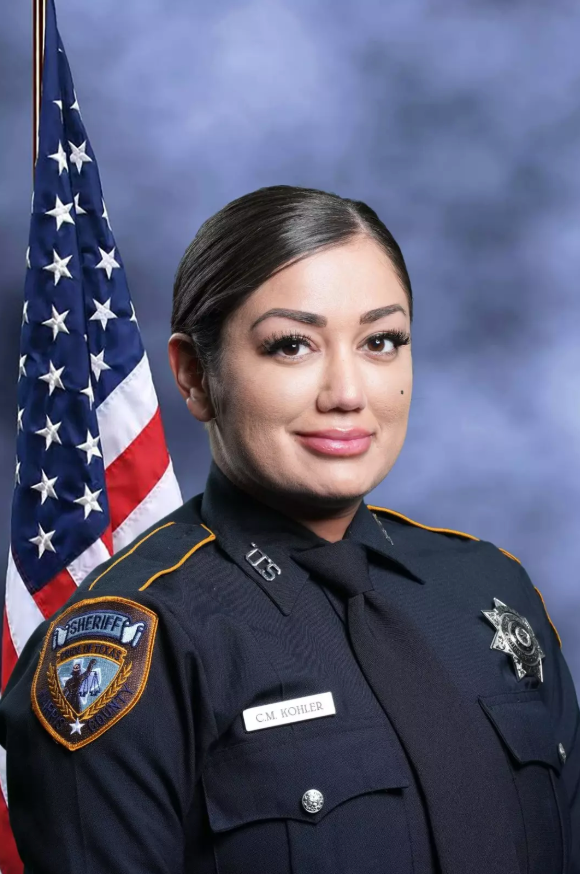A Rising Crisis: Four Texas Law Enforcement Suicides in Just Over a Month Raise Mental Health Concerns

A recent string of tragic losses has once again put a spotlight on the mental health crisis among law enforcement officers. In a span of just over six weeks, four current and former deputies associated with the Harris County Sheriff’s Office (HCSO) in Texas have taken their own lives — a devastating reminder of the emotional toll that comes with the badge.
Law Enforcement and Suicide: The Growing Numbers
According to a 2023 report by the U.S. Fire Administration, first responders made up 1% of all suicides in the country between 2015 and 2017, with nearly 60% of those being law enforcement officers (LEOs). A 2024 follow-up study counted 1,287 suicides among law enforcement and correctional officers from 2016 to 2022.
More than half of those deaths involved local police officers, with sheriff’s deputies making up around 20%. Now, four more names have sadly been added to those statistics — highlighting the growing urgency of this crisis.

Deputy Christina Kohler: A Life Remembered
On March 13, a regional CLEAR Alert was issued for Deputy Christina Kohler, 37, after she was reported missing the previous day. Authorities at the time expressed concern for her well-being, describing her as a potential danger to herself.
Later that same day, Kohler was found deceased. Her death shook the department deeply. Constable Mark Herman honored her service and dedication, stating, “Her name and her life absolutely deserve to be remembered for her commitment to our profession.”
Kohler had served in the HCSO since 2018 and was most recently assigned as a court bailiff. Her quiet dedication and professionalism left a lasting impact on those who worked alongside her.
Maria Vasquez: A Sudden Goodbye
Tragically, just days after Kohler’s passing, former HCSO Deputy Maria Vasquez, 42, was confirmed to have died by suicide. Vasquez had left the department in December 2024. She was found at her home in southeast Houston.
In a joint social media tribute, the HCSO’s Community Engagement Division honored both women, writing:
“Heaven has gained two beautiful angels. May their memory be a blessing, inspiring strength and comfort to their friends, family, and coworkers during this difficult time.”

Two More Former Deputies Lost
Adding to the heartbreak, two more former deputies also died by suicide during the same period.
One of them, William Bozeman, had served with HCSO but had recently stepped away from law enforcement. Another, Long Nguyen, age 58, was confirmed to have died by suicide on February 26.
Though not all details have been publicly shared, the emotional weight of these losses is being deeply felt across the department.
Mental Health in Uniform: The Silent Struggle
Experts warn that mental health struggles within law enforcement are often overlooked or suppressed due to stigma.
Dr. Ron Acierno, director of the Trauma and Resilience Center at UTHealth Houston, compared the situation to challenges faced by military veterans.
“There’s still a culture of toughness — a belief that seeking help shows weakness. Many officers don’t even realize support exists, or they assume it won’t help.”
His center offers evidence-based therapy tailored to first responders, helping them process trauma through action-focused treatment.
Dr. Thomas McNeese, who leads HCSO’s Behavioral Health Division, also stressed how the demands of the job change a person over time.
“This job weighs on people. It doesn’t just affect you during your shift — it follows you home,” he said.
“That’s why it’s so important to reach out, to talk, and to know you’re not alone.”
How HCSO Is Responding
The Harris County Sheriff’s Office, the largest in Texas, has begun expanding its mental health and peer support programs in light of these recent tragedies.
In an emotional message, Constable Sherman Eagleton addressed officers directly:
“You are important. You are needed — even when you feel like you’re not. Please take care of yourselves and each other. Don’t carry this alone.”
Jose Lopez, president of the Harris County Deputies Organization, confirmed that internal discussions are underway to strengthen the mental health resources available to deputies.
Dr. McNeese acknowledged that while support services exist, they are currently limited in scale.
“We know we can’t meet the full demand yet. But having our presence here, inside the department, helps break the stigma. Officers need to see that we’re not here to punish — we’re here to help.”
A Wake-Up Call for Law Enforcement
The loss of four deputies in such a short time has sparked critical conversations about mental health, trauma, and emotional support within law enforcement.
This is more than a department issue — it’s a national one. Police officers across the country face incredible stress, often witnessing the worst parts of humanity, while being expected to stay strong, silent, and composed.
If there is one message to come from these heartbreaking events, it’s this: help is not weakness — it’s courage.
If you or someone you know is struggling with mental health or suicidal thoughts, please know that confidential help is available. In the United States, you can contact the National Suicide & Crisis Lifeline by dialing 988 — 24 hours a day, 7 days a week.